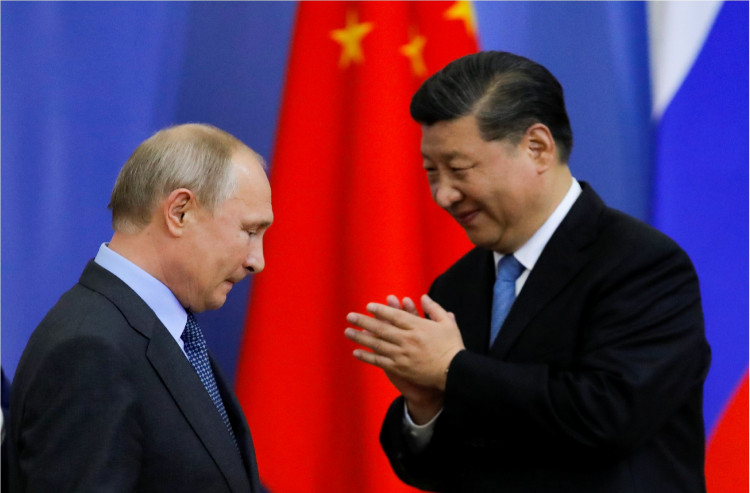The Kremlin announced that Xi Jinping and Vladimir Putin will meet via video conference on Friday.
According to Kremlin spokesman Dmitry Peskov, the two leaders will largely address bilateral relations between their countries, as well as exchange views on regional issues and their strategic alliance.
In recent years, Moscow and Beijing have grown closer, with Xi and Putin pledging a "no limits" alliance only weeks before Russia invaded Ukraine in February.
China has subsequently refused to condemn the aggression, instead blaming NATO and the U.S. for the crisis - and remains one of Russia's most steadfast friends as it becomes increasingly isolated on the international scene.
Russia conducted one of the largest missile barrages on Thursday, according to Ukrainian officials, and explosions shook towns and cities across the country, destroying civilian infrastructure, and killing at least three people.
"China is eager for (the war) to end," Yun Sun, director of the China Program at timson Center, said.
"Xi will try to emphasize the importance of peace to Putin," she added. "As Russia is getting impatient with the lack of progress on the battlefield, the timing is ripening for peace talk in China's eyes."
According to Alfred Wu, associate professor at the Lee Kuan Yew School of Public Policy at the National University of Singapore, China is becoming more isolated in its position toward Russia.
Wu cited Indian Prime Minister Narendra Modi as an example of people becoming more hostile to Russia's war.
Though India has not explicitly denounced Moscow's incursion, Modi informed Putin in September that now is not the time for conflict and urged him to seek peace.
According to Wu, this move implies China is now more isolated in its relationship with Russia, which is another reason Xi may be keen for a quick resolution.
When Xi and Putin last spoke in September at a conference in the region, in Uzbekistan, he had already indicated signs of dissatisfaction. At the time, Putin acknowledged Beijing had "questions and concerns" regarding the invasion, thus acknowledging their differing viewpoints.
However, according to observers, China's domestic situation has also changed substantially in the months afterwards, necessitating a new strategy for dealing with Putin this time.
After eventually abandoning its tight zero-COVID policy, with restrictions lifted and borders partially reopened, the nation is today battling its worst-ever Covid outbreak.
The U-turn followed an extraordinary wave of anti-zero-Covid protests around the nation, some of which grew to encompass larger complaints against Xi and the in charge Communist Party.





